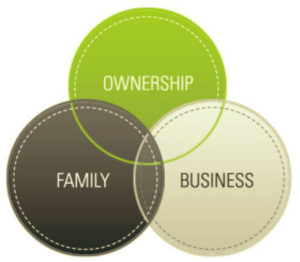SWOT Analysis And Family Business
A SWOT Analysis is a valuable strategic-management tool for helping businesses of all types identify strengths and uncover weaknesses. It pinpoints places where improvements are needed and spotlights pitfalls to be avoided. It’s also useful for identifying opportunities and threats. Entrepreneurs and their advisors use it to discover circumstances that stand in the way of goals. These can be marketing issues, management deficiencies, threats from competition and many other serious business challenges.
Family businesses differ from non-family businesses in that they function through the interplay of three subsystems. These are: the family, the business and the ownership, a/k/a equity shareholders. SWOT analysis of each of these subsystems provides insight into this interplay.
 We at The Family Business Leader recently performed a SWOT analysis with a third-generation family business. In the ensuing conversation we discovered several strengths within the family. One is that the members enjoy strong and supportive relationships. Another is finding that a rising-generation family member had useful industry experience gained working outside of the family business.
We at The Family Business Leader recently performed a SWOT analysis with a third-generation family business. In the ensuing conversation we discovered several strengths within the family. One is that the members enjoy strong and supportive relationships. Another is finding that a rising-generation family member had useful industry experience gained working outside of the family business.
The analysis also uncovered some weaknesses in the areas of management, leadership and entrepreneurship. Threats were identified, coming from changes in the industry. Opportunities were found for expanding sales.
Now in possession of a larger picture of their business and the environment in which it operates, family members—both those active and not active in the business—became encouraged to come together and act as an advisory group. Together they discussed the SWOT findings, acknowledged their strengths and developed plans for addressing their weaknesses. Their strong family relationships supported all members in the discussions.
As a direct result of their talks, the family member with outside experience was offered a position in the family business. This addition made it possible to take advantage of the opportunities to expand.
The SWOT analysis was also useful in shining a light on ownership issues reverberating within the family. The Ownership subsystem is the source of some of the thorniest issues in family businesses. Enabled by the experience of having productive conversations, the shareholders are now ready to plan open conversations about transferring ownership to the next generation.
These benefits and many more can be gained through SWOT analysis. Consider applying this invaluable technique to your own family business.
